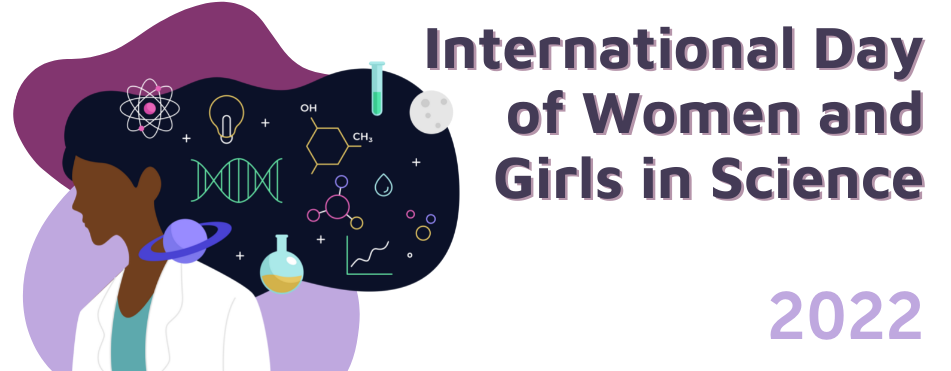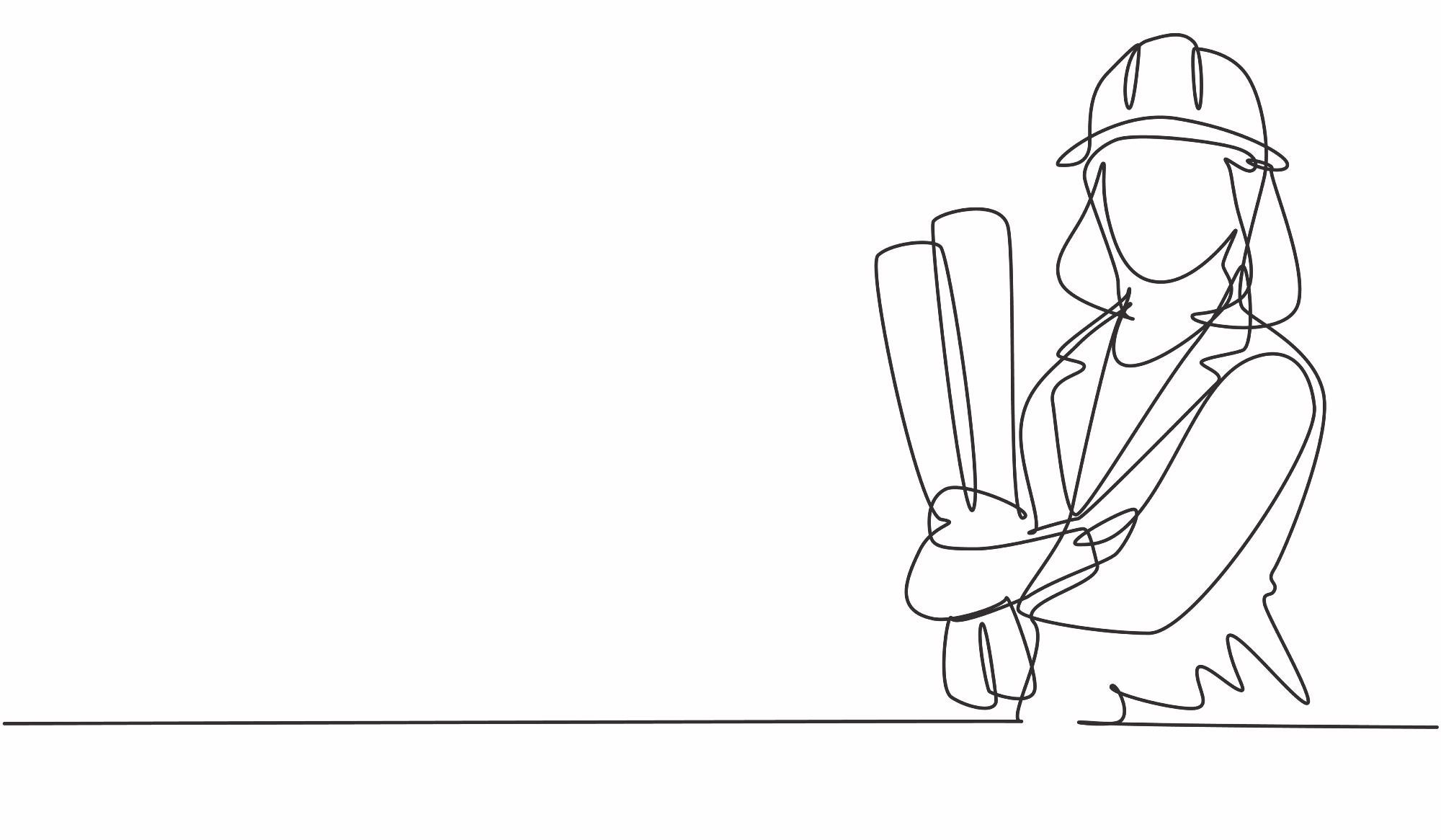Every year, the United Nations celebrates the International Day of Women and Girls in Science. In 2022, the focus is not only on the role women and girls play in science and engineering as beneficiaries but also as agents of change.
AZoBuild aims to share building, engineering, and architecture with the world and with people who can make a difference. Therefore, this year, we spoke to two women who are driving innovation in this field.

We asked each representative three questions exploring their journey into their careers, their thoughts on the future of their field, and the irreplaceable role of women in these spaces.
How did you become involved in the STEM community, and what advice would you give to young women and girls who are looking to start their careers within your field?
Dr. Ing. Marianna Charitonidou is an architect-engineer, spatial planner, curator, educator, theorist, and historian of architecture and urban planning, as well as a postdoctoral researcher at ETH Zurich
 I have been since early in my life very interested in architecture and in constructing complex structures. Architectural engineering, in my eyes, felt like combining artistic exploration and response towards practical problems with the aim of making our quotidian life better.
I have been since early in my life very interested in architecture and in constructing complex structures. Architectural engineering, in my eyes, felt like combining artistic exploration and response towards practical problems with the aim of making our quotidian life better.
The fact that imagination was at the center of architectural practice, as well as the fact that architectural and urban planning practice aim to provide better conditions as far as environmental and social equity is concerned, made me take the decision to become an architect.
My advice to young women and girls who are looking to start their career within my field is to explore to what extent their desire is related to changing how society works and to reflect on ways that their practice would contribute to this at micro-and-macro-scales.
 Christie Raptaki, the founder and CEO of Roadfill, works with highway authorities and councils to repair damaged roads using recycled plastic waste material
Christie Raptaki, the founder and CEO of Roadfill, works with highway authorities and councils to repair damaged roads using recycled plastic waste material
Believe in yourself and remember why you are doing what you're doing. Don’t let the dynamics shape you into what you are not. No matter what anyone says to you or if you believe you are good enough or not, you can do it and you will prove people wrong. Stay strong, remain determined, and don't see gender as an obstacle but rather a superpower.
Gender equity in STEM is central to realizing the UN’s Sustainable Development Goals, and yet the percentage of female graduates in fields like engineering is as low as 28%. What more could be done to help women become more prominent in science and related subjects in the future?
Dr. Ing. Marianna Charitonidou is an architect-engineer, spatial planner, curator, educator, theorist, and historian of architecture and urban planning, as well as a postdoctoral researcher at ETH Zurich
Women should try to change the situation through their creativity and their sensitivity. The dilemma of whether a woman should be devoted either to her career or to her family should not exist. There are many paths to combine both in inspirational ways.
During the last few years, many events have been organized in academia to challenge the fact that most of the dominant positions in universities are held by men. These events include workshops and seminars and go hand in hand with the transformations of the agendas and topics of pedagogy and teaching.
Christie Raptaki, the founder and CEO of Roadfill, works with highway authorities and councils to repair damaged roads using recycled plastic waste material
More awareness for young women in schools such as having workshops and events to show young women and young girls that they can go into careers in science and business, be accepted, and be taken seriously. To have a support network for girls to have a place to go and feel heard is vital and will also encourage more collaboration in their studies. More awareness in schools that women can go into science/business/etc jobs even though these areas are currently majorly male populated.
In addition, the businesses within these industries should prioritize conversations around diversity and every employee should feel valued. Understanding that individuals who enter via diversity schemes take these jobs based on their talent, not to 'just fill numbers' or 'make the company look good', is key to businesses creating positive working environments.
University isn’t the only route to science; there are also many apprenticeship schemes that start you with the right foot forward, and some students should definatly be encouraged to go down this route as traditional schooling does not suite every learning style.

Image Credit: Simple Line/Shutterstock.com
In recent years we have seen some incredible advancements in the construction sector, from innovative structural engineering projects to the development of new materials. Are there any stand-out developments that have excited you, and how do you expect your particular industry to evolve in the next ten years?
Dr. Ing. Marianna Charitonidou is an architect-engineer, spatial planner, curator, educator, theorist, and historian of architecture and urban planning, as well as a postdoctoral researcher at ETH Zurich
The circular economy is at the center of architectural engineering discourse at the moment. I am particularly interested in the relationship between building strategies and urban sustainability. I believe that it is of pivotal importance to use novel design methodologies aiming to enhance sustainable development. At the core of my research interests as a postdoctoral scholar and as an architect-engineer and urban planner is the role of these practices in promoting social and environmental equity.
I am also very interested in the use of advanced technologies such as urban scale digital twins for testing urban planning policy decisions. Regarding this, I have recently published an article entitled “Urban scale digital twins in data-driven society: Challenging digital universalism in urban planning decision-making” in the International Journal of Architectural Computing, in which I analyzed the impact of the virtual public sphere on how urban spaces are experienced and conceived in our data-driven society.
I am also very concerned about urban planning issues in the so-called Global South, and I think that it is our responsibility to conduct research beyond the Eurocentric or Western sphere.
Last year, I published an article that focused on the analysis of urban and housing conditions in Addis Ababa, entitled “Housing Programs for the Poor in Addis Ababa: Urban Commons as a Bridge between Spatial and Social” published in the Journal of Urban History. I argued that understanding the significance of accounts of dwellers during the phase of decision-making in endeavors goes hand in hand with considering common practices as a source of architecture and urban planning frameworks for low-cost housing in this specific context.
Christie Raptaki, the founder and CEO of Roadfill, works with highway authorities and councils to repair damaged roads using recycled plastic waste material
The advancements that have been made in the construction industry in recent years have been inspiring and show that the industry really is looking to change its relationship with the environment. The work that Versarien has done with Graphene is a development that particularly stands out, and the work going into our use of mycelium as a building material is showing some amazing promise.
Pi Polymer, a Scottish company, is leading the way in recycling waste plastics which to date go straight to landfill.
Over the next ten years, we expect to see a greater focus on sustainable materials as well as construction and architecture projects that try to curb the effects of climate change while being able to withstand the increasingly erratic weather patterns.
The future is in technology; the young who will be involved will thrive in the next decade.
Banner Image Courtesy of AZoNetwork with Material from plataa/Shutterstock.com